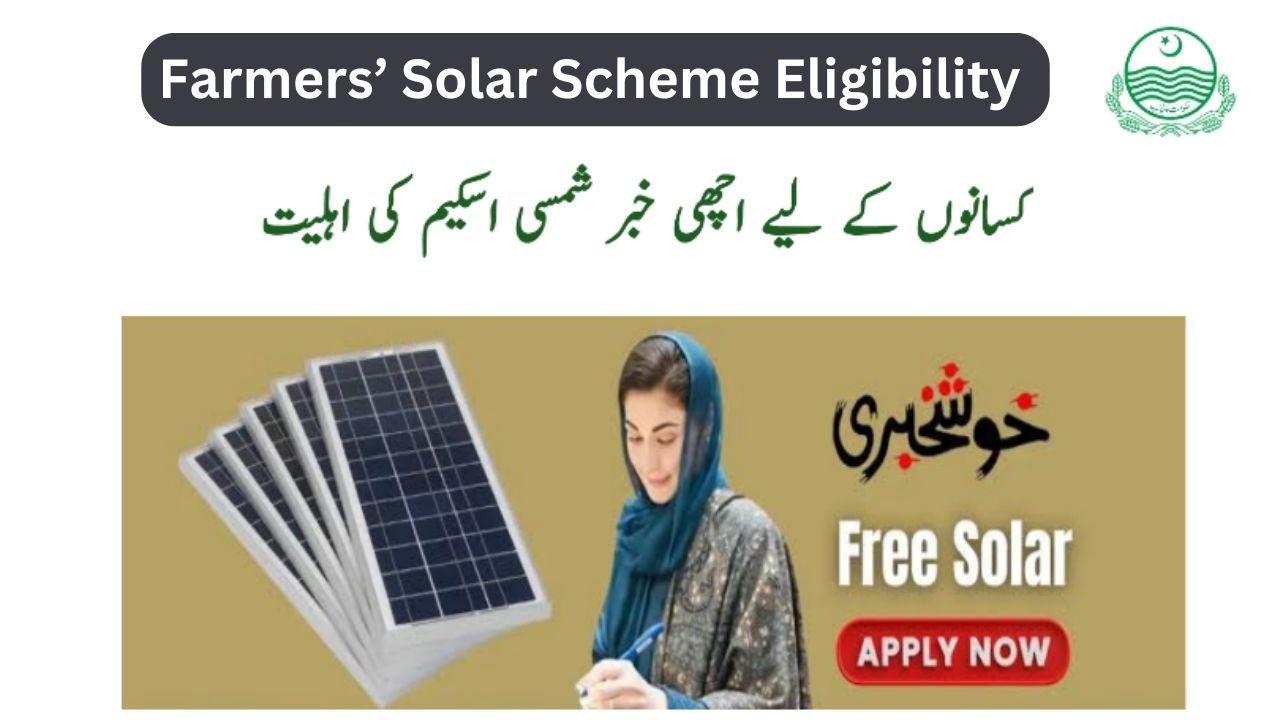Solar Scheme Eligibility Criteria For Farmers
In recent times, the agricultural sector has seen a notable shift towards sustainable practices, with an increasing number of farmers adopting solar energy to power their operations. Solar schemes aimed at supporting farmers in adopting solar technology have been crucial in this transition. However, understanding the eligibility criteria for these schemes is essential for farmers to fully leverage their benefits. This comprehensive guide explores the various aspects of solar scheme eligibility for farmers, providing insights, guidelines, and answers to frequently asked questions (FAQs) to facilitate informed decision-making.
Introduction to Solar Schemes for Farmers
Eligibility Criteria for Solar Schemes for Farmers
Eligibility for solar schemes can vary based on several factors, including location, farm size, type of solar technology, and government regulations. Here are some common conditions that farmers typically need to meet to participate in solar schemes:
Ownership of Agricultural Land
Farmers usually need to own or lease agricultural land to qualify for solar schemes. This requirement ensures that the solar installations benefit active farming operations.
Valid Documentation
Farmers are generally required to provide documents proving ownership or lease of the land, along with identification documents such as an Aadhaar card, voter ID, or passport.
Farm Size
Some schemes may have minimum or maximum farm size requirements. While smallholder farmers may also be eligible, larger farms might face different incentives or conditions.
Geographical Location
Certain schemes may prioritize areas with high solar potential or regions experiencing energy access challenges. Farmers in these locations are more likely to qualify for the benefits of solar schemes.
Compliance with Regulations
Farmers must adhere to local regulations and infrastructure standards when installing solar panels or other solar systems on their farms. This ensures compliance with safety norms and environmental considerations.
Comparison Solar Scheme Eligibility For Farmers
| Criteria | Requirement |
| Ownership of Land | Ownership or lease of agricultural land |
| Valid Documents | Land ownership/lease documents, ID proof |
| Farm Size | Varies based on scheme |
| Geographical Location | Priority regions with sunlight access |
| Compliance with Regulations | Adherence to local building codes and regulations |
Final Thought
Solar schemes for farmers offer a significant opportunity to transform the agricultural landscape by promoting clean energy adoption and enhancing farm sustainability. By implementing solar technology, farmers can lower operational costs, improve productivity, and contribute to environmental conservation. However, it is crucial for farmers to understand the eligibility criteria and conditions of these solar schemes to fully leverage their benefits. With the right support and incentives, solar-powered farming can lead to a more resilient and prosperous agricultural sector.
FAQs
Q1: Are there any subsidies available for solar installations on farms?
Yes, many government schemes provide subsidies or financial incentives to support the installation of solar panels and other renewable energy systems on farms. The eligibility criteria and subsidy amounts may vary depending on the specific scheme and location.
Q2: Can smallholders benefit from solar schemes?
Yes, several solar schemes cater specifically to smallholder farmers, offering tailored incentives and support. It is important for small farmers to research and identify schemes that fit their needs and circumstances.
Q3: What should farmers consider before installing solar panels on their farms?
Before installing solar panels, farmers should evaluate their energy needs, the feasibility of solar energy generation on their land, available incentives, funding options, and technical requirements. Consulting with solar experts or agricultural extension services can provide valuable guidance.
Q4: How can farmers ensure the proper maintenance of solar infrastructure on their farms?
Regular maintenance and monitoring are crucial for ensuring the optimal performance and longevity of solar infrastructure. Farmers should follow manufacturer guidelines, conduct periodic inspections, and promptly address any issues to maximize the benefits of their solar investments.
Conclusion
Solar schemes for farmers present a promising avenue for advancing sustainable farming and livestock management. By meeting eligibility requirements and utilizing available incentives, farmers can harness the benefits of solar energy to boost productivity, cut costs, and support environmental conservation. Continuous backing from governments, policymakers, and stakeholders is crucial for accelerating the adoption of solar-powered agriculture and fully realizing its potential to transform the farming sector for the better.


